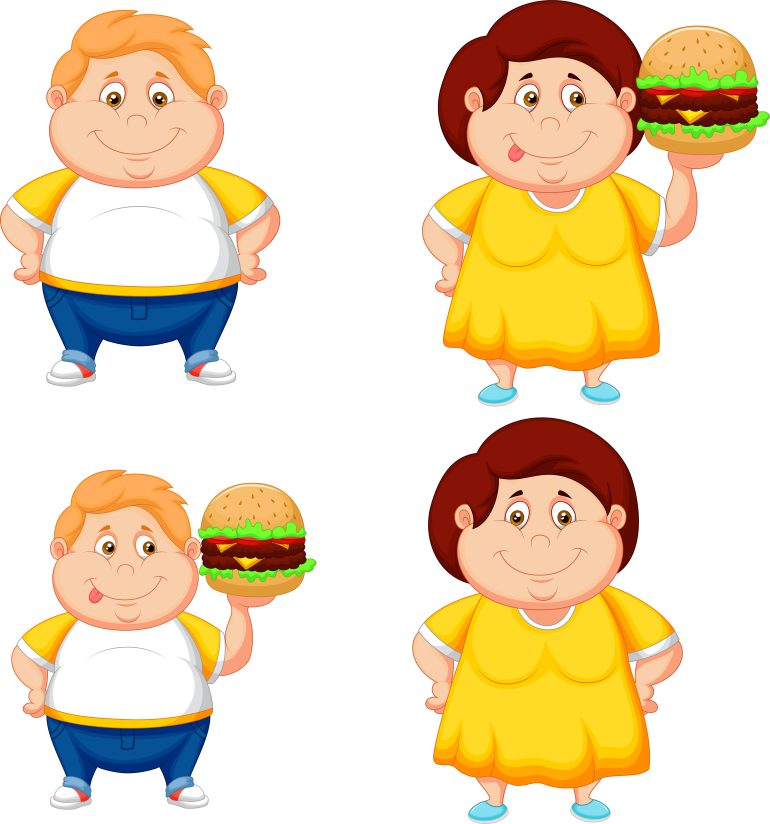As Statistics Netherlands (CBS) report, a quarter of young adults (18-25 years old) in the Netherlands are overweight. This means that their body mass index (BMI) is 25 or higher. Everyone can easily calculate their own BMI by dividing their weight in kilograms by the square of their height in meters. People with a BMI over 30 are classified as obese, while severe obesity starts at 35. According to CBS, seven percent of young adults in Holland are severely obese.
Complex causes
It is difficult to identify one cause of this situation. Being overweight has a lot of possible causes. ‘The main problem is with food intake, but our metabolic condition, mental health, our genes, and our environment also play a role,’ says Bernard Leenstra, a GP and ambassador of the National Association of General Practitioners (LHV). A lack of exercise is also a problem. The CBS mentions that almost half of young adults do not meet the exercise guidelines established by the Health Council, but dr. Leenstra says that physical activity plays a relatively small role in the development of excess weight. ‘Obviously, it helps to do sports, but if you eat chicken nuggets and burgers for breakfast, you can walk 10,000 steps a day and you will end up being overweight with bad metabolic health anyway,’ he says.
The high intake of calories is caused by various factors. Some people underestimate the number of calories that certain products contain. However, dr. Leenstra points out that it is important not to blame the patients for their weight. ‘Food companies try to trick us to buy their unhealthy products. When you go to the supermarket, you first see the vegetables and fruit but closer to the cash registers you see chocolate bars and snacks. That is not a coincidence,’ says the GP.
Excess weight is difficult to manage
While he admits that being overweight, particularly obese, can carry serious health complications and lead to cardiovascular diseases, dr. Leenstra suggests that people who are only slightly overweight should accept their bodies. ‘After being on a diet for a couple of months, you eventually start to get tired, sleep badly, eat more and go back to your old habits. Research shows that we gain back the weight that we lost in a maximum of five years. I advise people not to try to lose weight but to attempt to maintain it on a stable level.’
When diet and exercise fail, some patients turn to medication. GLP-1 analogs, very popular in the US as weight loss medications, are not yet registered in the Netherlands for this purpose. They are pricey and only used for patients with type 2 diabetes. Dr. Leenstra does not share the common excitement for GLP-1 analogs as a remedy for the pandemic of obesity. He also points out that to avoid bouncing back to the initial weight, people need to take the injections for the rest of their lives. Some overweight patients use metformin for insulin resistance to boost their weight loss and reduce their appetite, but: ‘No research confirms that this is effective. Foreign patients are often frustrated with Dutch doctors because we do not prescribe medications that easily. That is because we only prescribe things that we know work,’ explains dr. Leenstra.
The government needs to act
Leenstra works in a practice in a rural area where the residents are wealthier than the national average. However, as he says, low economic status is not a crucial factor causing people to gain weight. ‘Yes, you can buy a hamburger for a couple of euros, but research shows that blaming the big number of overweight patients on their financial situation is a misunderstanding. What is more important is the subjective economic status and people’s sense of dignity in relation to the rest of society. It is partly about mental health and self-worth but also about feeling valued as a citizen,’ says dr. Leenstra. This could be one of the reasons why the CBS report shows that young people with Dutch origins are the least likely to be overweight, while those from ethnic minority groups are struggling more with their weight.
Dr. Leenstra believes that to tackle the problem of an increasing number of overweight patients, government action is needed. The rich are becoming richer and the poor are becoming poorer, the GP says. Right now, the two main steps towards tackling the problem of excess weight in the country are making people feel more valued as citizens and regulating the companies that produce our food and drinks.
Written by Zuzanna Kuffel
